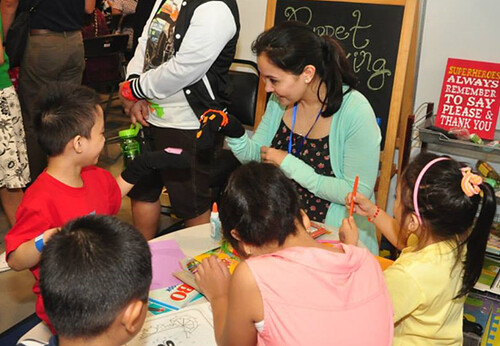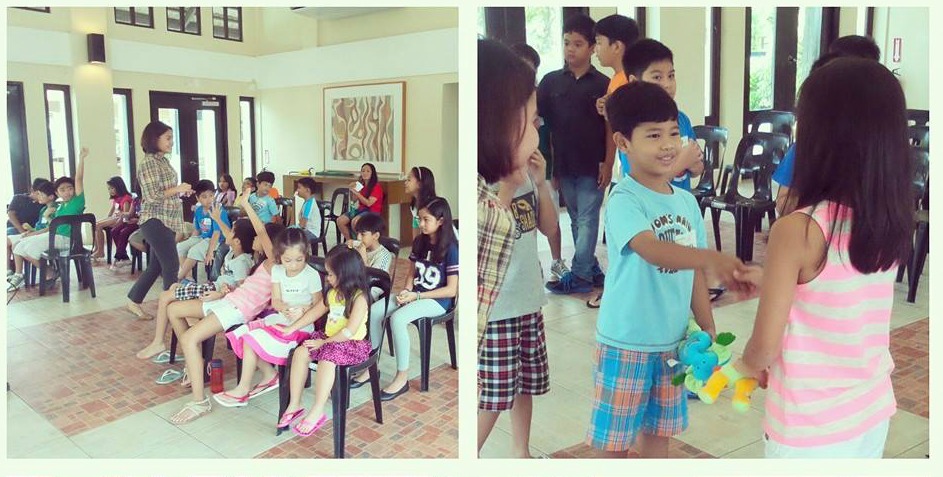 Teachers from Molly Manners show kids how to practice good manners.
Teachers from Molly Manners show kids how to practice good manners.
Teaching our children good manners should be as much a part of our everyday routine as feeding them nutritious meals or reading them a bedtime story. Sadly, it’s something that has been forgotten by even the most well-meaning of parents, and we see kids growing up without knowing the importance of saying “Please” and “Thank you.”
Criselle Garcia of Molly Manners Philippines, an organization which has created a program teaching children international standard manners through actual interaction with their peers, observes, “A lot of people see manners as a set of rules or guidelines that dictate how a person should behave. One must realize, however, that manners are not just about what fork to use but about treating one’s self and others with respect. I believe that the single most important thing that a parent can teach a child is respect. Using good manners shows that we have respect because manners are the actions or behaviors that we put out to convey our care and consideration for one’s self and other people.”
More than that, knowing good manners boosts a child’s self-esteem. If your child knows how to introduce himself in a public function or if he knows which utensil goes with what dish, he’ll be able to carry himself with confidence.
Of course, the best way to teach our children good manners is practicing them ourselves. Children model what they see. If you’re not such a stickler for good manners, chances are your kids won’t be as well. But more than teaching them the what’s and what not’s, parents should share the values behind them too!
So what manners should your child know now? We asked Garcia to give us the lowdown.
#1 Whenever the occasion calls for it, always say ‘please’, ‘thank you’, ‘you’re welcome’, ‘excuse me’, ‘I’m sorry.’
WHY? “These simple yet very powerful words can create a big impact in someone’s life.
#2 Be a good listener.
WHY? “There is an old expression that says: ‘You have two ears and one mouth, so you should listen twice as much as you speak.’”
#3 Think before you speak.
WHY? “It’s important to remember that words are very powerful. Words can be used to make someone feel respected and appreciated. Unfortunately, words can also make someone feel bad and I’m sure we do not want to hurt other people’s feelings.”
#4 Always behave in a manner appropriate to the occasion and location.
WHY? “Taking care of how we look and how we behave is very important. We work on our personal manners not because we want to impress people but because we want to respect ourselves. If we treat ourselves well, it shows others that we want them to treat us with respect too.”
#5 Practice proper table manners.
WHY? “Mealtime is all about spending a good time with our family and friends. When we use good table manners, it makes for a pleasant meal for everyone.”
#6 Learn proper Netiquette.
WHY? “More and more we live in a high-tech, low-touch world, so it is absolutely essential that we use proper etiquette in our online communications. This helps avoid misunderstanding.”
#7 Respect our elders.
WHY? “I am sure we all hear from our parents that we should respect our elders. Unfortunately, only a few follow this. Little actions such as opening the door for them or offering your seat for them in the MRT can go a long way.”
#8 Do not hesitate to give and accept compliments.
WHY? “Giving a compliment to someone is an act of kindness. It is also equally important to be able to accept a compliment from other people.”
# 9 Be a happy helper!
WHY? “When you are helpful at school, at home, and with your friends, it doesn’t just make others happy, it also makes you happy.”
#10 Share!
WHY? “Sharing is best taught while young. Children can practice good sharing during their playtime. If you have already had a turn with a toy, let your friend play with it next. How does it make you feel when someone doesn’t share with you?”


Leave a Reply